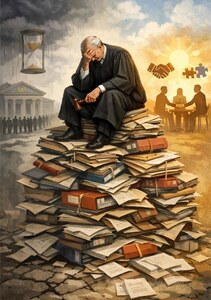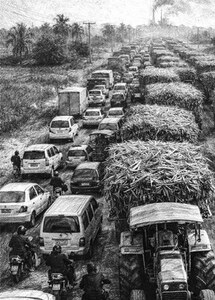THE 15th anniversary of death of renowned poet Atta Shad was commemorated on Feb 13. It appears Atta Shad has, unfortunately, been entrusted to oblivion by critics.
What is more disheartening is that so far he is not even considered worthy of inclusion in any of the anthologies of modern Urdu poetry.
As a result, students and readers of Urdu literature outside Balochistan hardly know anything about the valuable contributions he rendered in the field of Urdu literature. Atta belongs to the generation of poets who emerged in the early 1960s, a period that marks the end of the Progressive Writers Movement.
Unlike his contemporaries, the clichés of Urdu poetry couldn’t appeal to Atta Shad. Instead he opted for expressions and metaphors deeply engrossed in his soil.
His Urdu poetry is a true reflection of Balochi culture and landscape of Balochistan. He added a new poetic flavour to Urdu poetry by versifying certain Balochi folk lore, romantic sagas and maxims.
Poems like ‘Mahnaaz’, ‘Shah Mureed aur Haani’, ‘Wafa’ and ‘Lori’ represent different aspects of Balochi culture. These poems also help in tracing the psyche of the typical Baloch society.
The short poem ‘Wafa’ (Oath of Allegiance) reads as:
On my motherland A bowel of water Worth eternal allegiance Let us quench our thrust And Submit ourselves to the eternal bond.
Apart from Balochi culture, the landscape of Balochistan is another subject that fascinated Atta Shad.
Colours of different weathers, frozen winds, flowing streams, hymning fountains, snow-covered valleys, rocky mountains, barren lands, fluttering trees and the likes frequently appear in Shad’s poetry.
However, he was not a mere photographer of sceneries of Balochistan, he has seen Balochistan beyond its landscape. He employed these expressions as references to portray the deprivation of the region and sufferings of his people.
A predominant wave of resistance is also visible in Shad’s poetry.
He has raised his voice against all forms of social oppression. Over the years Balochistan has been vulnerable to tribal oppression and dictatorship.
The poem ‘Sar-i-Gongzaar-i-Hawas’, one of his masterpieces, evokes the wounds of the 1970s when the province was undergoing military operation. Likewise, the short poem ‘Hukm- i-Hakim’ pours light on the murkiest realities of tribalism, a phenomenon that has long enchained humanity not only physically but also mentally and ideologically.
In a broader sense, Atta truly served as a bridge between Urdu poetry and Balochi culture.
FAZAL BALOCH Turbat
































